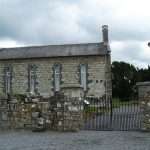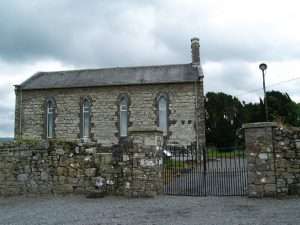Sermon for the Fourth Sunday in Lent, 26th March 2017
“Lord, I believe.” John 9:48
To remember what we might learn from the Gospel reading, we have five words from the text beginning with the letter “b:” birth, blind, beg, began and believe.
Saint John Chapter 9 Verse 9 tells us that as Jesus “walked along, he saw a man blind from birth.” The idea of someone suffering a disability from birth would have been troubling for the religious people at the time, they believed that you got what you deserved, but how could someone deserve something with which they had been born? The disciples look for an answer to the question, “Rabbi, who sinned, this man or his parents, that he was born blind?”
The question should make us ask about the sort of God in whom the people believed? To be born blind in Jesus’ time would have meant lifelong hardship, what sort of God would have thought such a life of suffering appropriate? Do we believe in a cruel and arbitrary God who thinks it acceptable that people are born to suffer? Would such a God be the God who comes to us in Jesus?
Jesus answers the disciples in Verse 3, “Neither this man nor his parents sinned; he was born blind so that God’s works might be revealed in him.” To be blind was an extraordinarily isolating experience. The people would have listened to the reading of the books of the Law, especially to the book of Deuteronomy, which promised health and wealth to those who were faithful. If being faithful brought health and wealth, then to suffer, as the blind man did, must have been due to a lack of faith. The people would have looked at the blind man in a judgmental way. Jesus shows that God sees people differently, in verses 6-7, John tells us, ” he spat on the ground and made mud with the saliva and spread the mud on the man’s eyes, saying to him, ‘Go, wash in the pool of Siloam’ (which means Sent). Then he went and washed and came back able to see.”
Do we think about what our ideas about God might say to other people? Life generally goes well for us, and we thank God that we are so blessed, but what do our attitudes say to those whose lives are hard or difficult? What do our attitudes say to those who suffer misfortune or tragedy? We need to be wary that we do not appear like the Pharisees.
Birth, blind, the third “b” is beg. In Verse 8 we read, “The neighbours and those who had seen him before as a beggar began to ask, ‘Is this not the man who used to sit and beg?’” Why did no-one ever question such attitudes? The man’s family and neighbours seem to accept that it is appropriate for the man to have to survive on the few coins that might be given him by passers-by. Were they so negative in their attitudes toward someone who was blind that they would leave them sitting at the roadside? Jesus challenges all of their attitudes.
Do we follow Jesus’ example in challenging attitudes in our own time. Are we content, as were the family and neighbours of the blind man, just to pass by people? Do we pretend that people going through difficult times are not our concern? The people in Jesus’ time noted that the man used to beg, but did nothing about it; do we need to guard against simply leaving things as they are?
The Pharisees are not pleased at what has happened and the man born blind meets criticism and opposition from them, particularly because the man has been healed on the Sabbath. In Verses 32-33 he challenges the opponents of Jesus, “Never since the world began has it been heard that anyone opened the eyes of a person born blind. If this man were not from God, he could do nothing.” The Pharisees would have been affronted by the man’s words. They were the guardians of tradition; they said what had and what had not been; they said what could and what could not be. The man talking of times since the world began is saying that Jesus is new and different, that Jesus is outside of their control, that Jesus is not bound by their traditions.The Pharisees are stung by the man’s words, expelling him, in Verse 34, “‘You were born entirely in sins, and are you trying to teach us?’ And they drove him out.”
Have we the courage to be like the man who was born blind and accept that being a follower of Jesus might bring opposition and criticism? Have we the courage to see that Jesus is not bound by human traditions and that he does things that are new and different? Have we the courage, if necessary, to set aside our own traditions and to go the way that we believe Jesus is calling us?
Birth, blind, beg, began, the final “b” is believe.Jesus understands what the man’s healing had cost; the man could now see, but had been driven from his community. Verse 35 tells us, “Jesus heard that they had driven him out, and when he found him, he said, ‘Do you believe in the Son of Man?’” Jesus goes to find the man, he doesn’t leave him out on his own. The man wishes to believe, perhaps he needs to believe, for his life has a new direction. The man asks Jesus, in Verse 36, “And who is he, sir? Tell me, so that I may believe in him.” The man has lived for so long on the edge of society that he has no confidence and makes no assumptions. Even the healing has not given him certainty, Jesus says gently to him, in Verse 37, “You have seen him, and the one speaking with you is he.” Jesus finds him and speaks to him with gentleness, it is a moment of grace.
In our own faith, are we often like the man? Despite our experiences, despite the things we have learned, are we hesitant in our faith? Are we lacking in confidence? The man’s faith has cost him friends and neighbours, but he has been prepared to believe. “Lord, I believe,” he says: can we say his words?



Comments
Sermon for the Fourth Sunday in Lent, 26th March 2017 — No Comments
HTML tags allowed in your comment: <a href="" title=""> <abbr title=""> <acronym title=""> <b> <blockquote cite=""> <cite> <code> <del datetime=""> <em> <i> <q cite=""> <s> <strike> <strong>